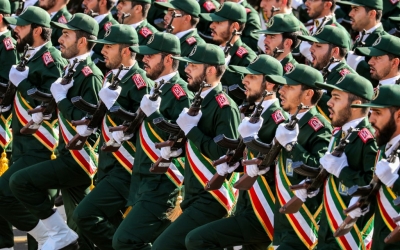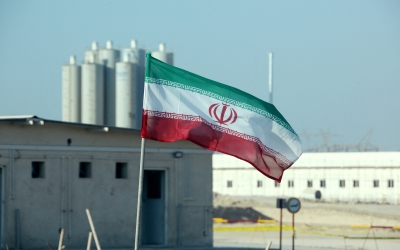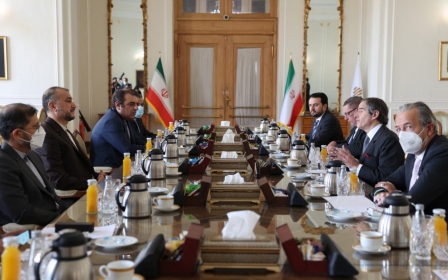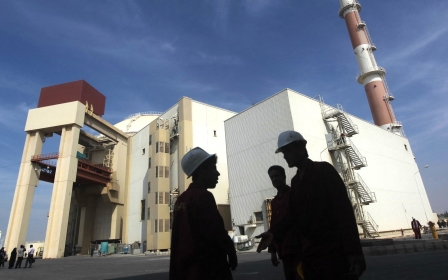US considers removing Iran's IRGC from terrorism list
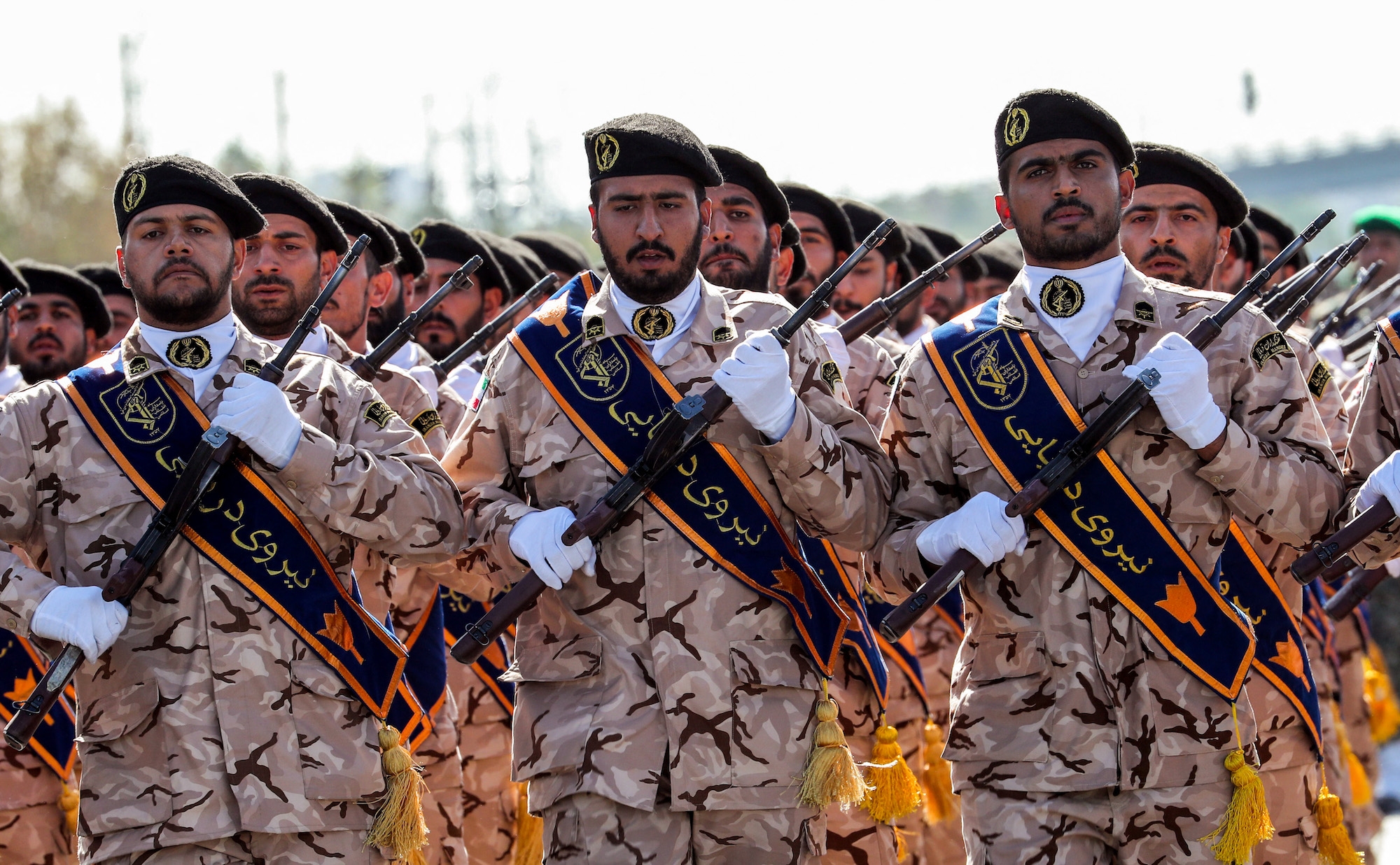
The United States is considering removing Iran's Revolutionary Guards Corps (IRGC) from its foreign terrorist organisation blacklist in return for a “public commitment from Iran to de-escalation in the region”, a source familiar with the matter has said.
The source, who spoke on condition of anonymity, said on Wednesday that US President Joe Biden’s administration was weighing up whether to drop the terrorist designation "in return for some kind of commitment and/or steps by Iran, with respect to regional or other IRGC activities.”
The Biden administration's consideration of such a tradeoff was first reported by Axios, citing Israeli and US sources.
Washington has not decided what might be an acceptable commitment from Tehran in exchange for such a step, which would draw sharp criticism from Republicans as well as several Democrats in the Senate, according to Axios.
A State Department official stressed that regardless of the decision, the IRGC would remain on a separate terror list and be subject to numerous sanctions, and the US would still have a "panoply of tools to counter Iran’s destabilising activities.”
According to the news site, the Israeli government is particularly concerned about the fact that Washington “didn't demand specific commitments from Iran not to target the US and its allies in the region”, citing senior Israeli officials.
In 2019, the IRGC was blacklisted by then-president Donald Trump, who accused the group of promoting terrorism "as a tool of statecraft". The contentious decision marked the first time Washington had ever branded a state military institution as a foreign terrorist organisation (FTO).
In response, Iran’s then-president Hassan Rouhani signed a bill into law declaring all US forces in the Middle East terrorists and calling the US government a sponsor of terrorism.
The IRGC is a powerful faction in Iran that controls a business empire as well as elite armed and intelligence forces, which Washington accuses of carrying out global terror campaigns.
Unclear US position
Asked about the possibility of removing the IRGC from the US terrorism list, US State Department spokesman Ned Price declined comment, beyond saying that sanctions relief is at the heart of negotiations to revive 2015's nuclear deal.
Last week, an Iranian official said the IRGC's removal from the blacklist had been under discussion as far back as June of last year, but that the issue had become more complicated after last summer's election of hardliner Ebrahim Raisi as Iran's president.
The Iranian official, who spoke on condition of anonymity, said the United States had made clear "they cannot remove it without major concessions from Iran," a stance he said had been rejected by Iran's lead nuclear negotiator, Ali Bagheri Kani.
The IRGC's political influence in Iran's complex power structure has increased since the election of Raisi, who took office in August and whose government includes dozens of Revolutionary Guard commanders.
Raisi's election led to a five-month gap in the indirect US-Iranian talks over reviving the nuclear deal, which Trump abandoned in 2018 and reimposed US sanctions, prompting Iran to start violating its nuclear limits about a year later.
Negotiations resumed in late November, with officials from other parties to the deal - Britain, China, France, Germany and Russia - as well as European Union officials coordinating the talks shuttling between US and Iranian representatives. An agreement would allow Iran to sell its oil abroad.
Obstacles in nuclear talks
Talks in Vienna aimed at restoring the 2015 nuclear deal with Iran resumed on Tuesday, after Russia walked back from demands relating to the agreement and accepted narrower protections, clearing the way for the US and Iran to continue negotiations.
Earlier this month, Russia was accused of trying to take the nuclear deal hostage as part of its wider battle with the West following its invasion of Ukraine.
Attempts to revive the deal were briefly put on hold last week after the US announced it had seized the oil cargo of two Iranian ships, which it claimed were breaking sanctions.
The US had also made new unspecified demands that surprised and angered the Iranian side, Middle East Eye reported.
Washington was refusing to lift the designation of the IRGC as a foreign terrorist organisation; an issue between Iran and the International Atomic Energy Agency (IAEA) on the “possible military dimensions” of Iran’s activities has still to be resolved; and there remains the issue of removal from the sanctions list of other companies, businesses and individuals.
Tehran said at the time that Washington would need to make a decision to restore the Iran nuclear deal.
“We are not at a point of announcing an agreement now since there are some important open issues that need to be decided upon by Washington… As soon as we receive their decisions, we will be able to return to Vienna and reach a final agreement,” Iran’s foreign ministry spokesperson Saeed Khatibzadeh stated earlier this week.
Under the agreement, Iran limited its nuclear programme in return for relief from economic sanctions. In order to revive the deal, multiple sources have said that dropping the FTO designation is one of the last, and most vexing, issues in the wider indirect talks.
Middle East Eye propose une couverture et une analyse indépendantes et incomparables du Moyen-Orient, de l’Afrique du Nord et d’autres régions du monde. Pour en savoir plus sur la reprise de ce contenu et les frais qui s’appliquent, veuillez remplir ce formulaire [en anglais]. Pour en savoir plus sur MEE, cliquez ici [en anglais].


